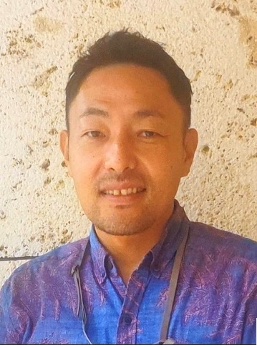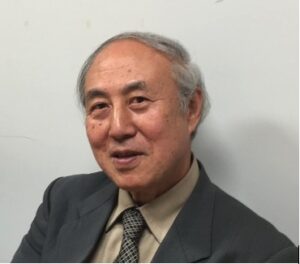Providing New Insights in the Fields of Genealogy and Local History in Asia: Part Two [Webinar]
The IFLA Local History and Genealogy Section cordially invite you to a webinar on 11 June 2024, 10:00-11:30 (China time) about new insights in the field of genealogy in Asia.
Please register at the link above.
Speakers

“To Perpetuate the Worldwide Okinawan Network by Okinawa Prefectural Library”
Hiroaki Hara, Supervisory Librarian, MLIS, Okinawa Prefectural Library.
harahrok@pref.okinawa.lg.jp
Many people departed Okinawa Prefecture and moved to other countries starting in 1889 until after WW II. Currently, Okinawa Prefecture estimates that there are approximately 420,000 people of Okinawan descent living in the United State, including Hawaii, and countries in Central and South America. They organize Okinawan associations in each country to perpetuate Okinawan history and culture. Whereas Okinawa prefecture government has been working to strengthen ties with Okinawans overseas, such as by holding the “World Uchinanchu Festival” once every five years.
In 2016, Okinawa Prefectural Library started genealogical research to serve descendants of Okinawan migrants. In addition, we collaborated with the various Okinawan Associations to research and collect donations of immigrant-related materials (books and documents) and artifacts, and have set up a “Migration Materials Corner” in the Local History area. Furthermore, we utilize these resources to preserve and perpetuate the history of Okinawan immigrants, as well as to raise awareness, by holding special exhibitions and multilingual lectures, thereby contributing to the development of Okinawan networks in our home prefecture and overseas.
In this presentation, I will introduce the results and challenges of this unique international project that makes use of the library’s functions and local collections

“Utilizing Local History and Genealogy Practices as References onto School Education Curriculum – Examples of Taiwan.”
Dr. Chihfeng P. Lin
Part-time Associate Professor, Department and Graduate School of Information & Communications, Shih Hsin University
chihfeng@mail.shu.edu.tw
“Local History” is local area development records, include geographical circumstance, and miscellaneous historical records. Local History is important reference for local history studies. Genealogy is family records of important event and heritage information. Names and titles are important research resource of investigating the family history and development. The records in Taiwan is especially important to trace immigrant route from Mainland China. The records of marriage, family history, and demographic document are essential reference resources. Genealogy and Local History plays important roles as connection of cultural heritage between Taiwan Strait besides geopolitical disagreement. Taiwan is undergoing an educational innovation, establishing a compulsory education to 12 years. The related curriculum planning is advancing accordingly. Genealogy and local history together is helpful to assist the planned curriculum to impart the education elements in youth learning. In recent year, Taiwan also built many local history and genealogy resources that are digitized and placed into Internet for use. The resources need to be well-used and be promoted, especially from viewpoints of school education.
This presentation will introduce several workable examples from conferences or workshops of Local History and Genealogy Section, IFLA and RUSA of ALA, as well as useful reference media programs of China. Related issues were discussed in terms of school education while presenting working examples.

“A Study on the Narrative Logic of Hui Genealogy in Taoyuan, Hunan under the Perspective of Chinese National Community”
Dr. Canjiao Liu
Professor, Central South University
liucanjiao@163.com
Genealogy is a cultural practice of writing the common memory of ethnic groups. In their genealogies, the Hui people in Taoyuan, Hunan Province, have integrated the deeds of their heroic ancestors, the history of military migrations, and the values of loyalty, filial piety, and patriotism into their genealogical narratives. The genealogical narrative presents the long history of the family’s migration to Changde, a military stronghold in Hunan, in order to fulfil the national mission. The genealogical narrative closely connects the reality of regional life and the historical changes of the family, expresses the value orientation of the fate of the family and the country, and carries forward the spirit of loyalty, filial piety and patriotism of the Chinese nation. Through the narrative of mutual support of the ethnic groups, it embodies the historical process of interaction, exchange and integration between the Hui and other ethnic groups in the multi-ethnic embedded areas, as well as the common prosperity and development of a better life. The study of the narrative style, narrative dynamics and narrative plot of the Taoyuan Hui genealogy presents the Hui’s identification with the Chinese national community and the narrative logic of forging a strong sense of the Chinese national community through the practice of genealogical narratives, and demonstrates the positive role played by ethnic minorities in the historical process of forging a strong sense of the Chinese national community.
Moderator

Takashi Nagatsuka
Secretary, IFLA Local History and Genealogy Section
Professor Emeritus, Tsurumi University
nagatsuka-t@tsurumi-u.ac.jp